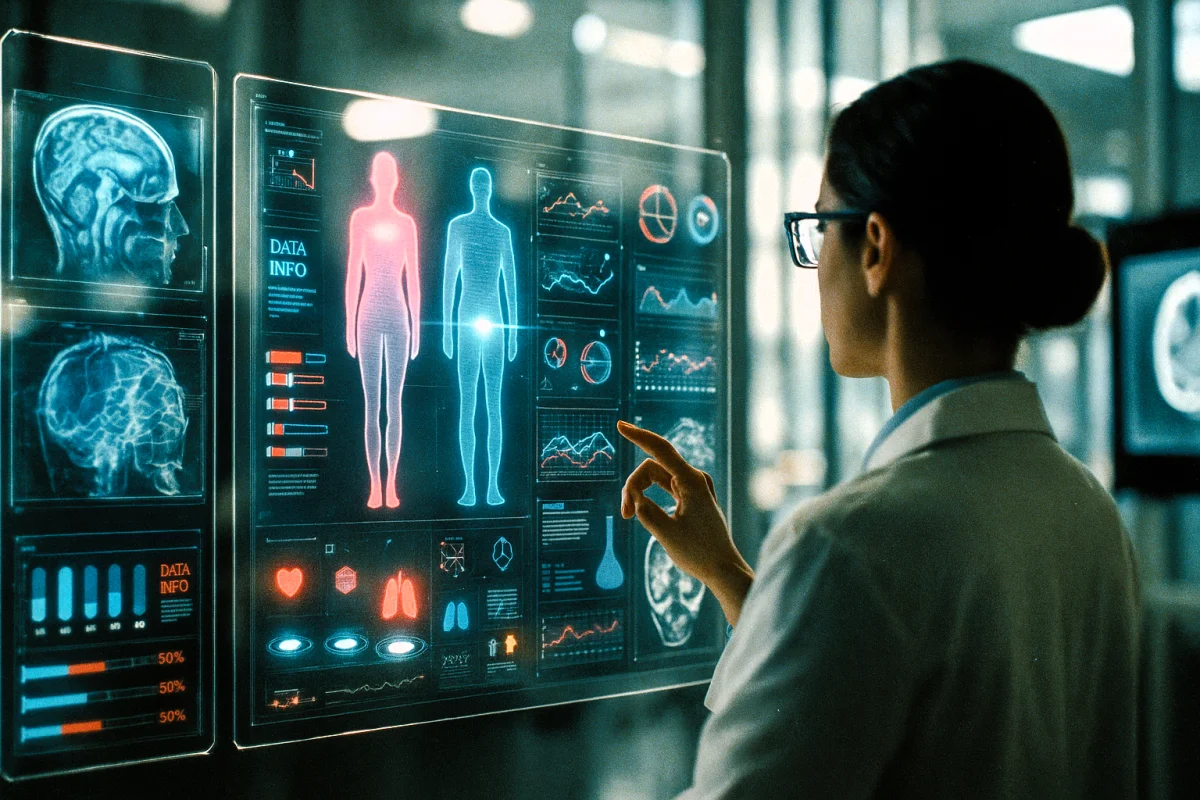How Does AI Work in Medical Diagnostics?
Artificial Intelligence (AI) has been transforming the healthcare sector for several years, and one of its most significant contributions is in diagnostics. Early detection and accurate identification of diseases have always been among the greatest challenges in medicine. Today, AI algorithms enable doctors to identify conditions faster, more accurately, and more efficiently.

How Does AI Work in Diagnostics?
The foundation of AI in diagnostics is data-driven learning. Systems process vast amounts of medical data — lab results, imaging scans, clinical records — and learn to distinguish between healthy and pathological signs. For example, subtle changes in X-rays or MRI scans that a human eye might miss are often clearly detectable for AI.
Technological Foundations
- Neural Networks — analyze visual data such as CT and MRI images;
- Natural Language Processing (NLP) — interprets doctors’ notes and patient histories;
- Predictive Analytics — forecasts disease progression risks based on existing data;
- Machine Learning Models — improve accuracy over time as more data is processed.
Applications of AI in Medicine
- Cancer Diagnostics — AI can detect cancer cells in images where the human eye may not see them;
- Cardiology — algorithms analyze EKG data and patient history to assess risks;
- Ophthalmology — AI identifies conditions such as diabetic retinopathy at an early stage through retinal scans;
- Infectious Diseases — analyzes lab results and imaging to identify the type and spread risk of infection.
Key Advantages
AI in diagnostics offers several crucial benefits:
- Speed — results delivered within seconds;
- Accuracy — detects small details humans may overlook;
- Accessibility — supports doctors in making faster decisions, especially in high-demand hospitals;
- Personalization — tailors recommendations to individual patient data.
Ethical and Legal Challenges
While AI diagnostics presents immense opportunities, it also raises ethical and legal issues. For instance, who is responsible if AI produces an incorrect diagnosis? Should AI-generated conclusions be considered final and binding? Moreover, patient data privacy is critically important since AI systems heavily rely on sensitive medical information.
Future Outlook
AI in medical diagnostics is expected to advance further. In the near future, continuous patient monitoring via smart devices (smartwatches, wearables) will be directly integrated with AI systems, allowing doctors to receive alerts about health deterioration in real-time. Additionally, a hybrid model — collaboration between doctors and AI — will likely become the standard in clinical practice.
Conclusion
AI in medical diagnostics is not just a technological breakthrough, but also the foundation of future medicine. It combines science, technology, and human expertise to deliver faster, more accurate, and more personalized healthcare. However, ethical, legal, and social considerations must be addressed to ensure this innovation becomes a fair and effective benefit for society.
What do you think — could AI become a doctor’s most important partner in the future?
✍ Article Author
- Registered: 26 July 2025, 15:34




 Silent Cat 🐾
Silent Cat 🐾